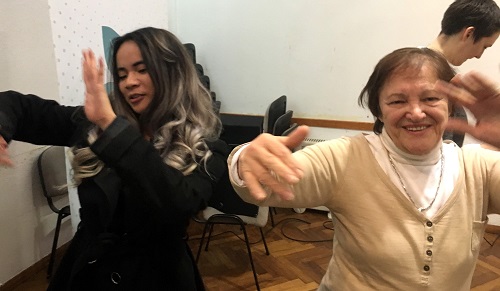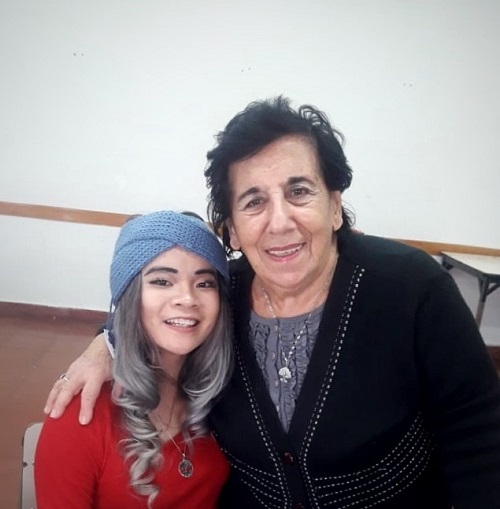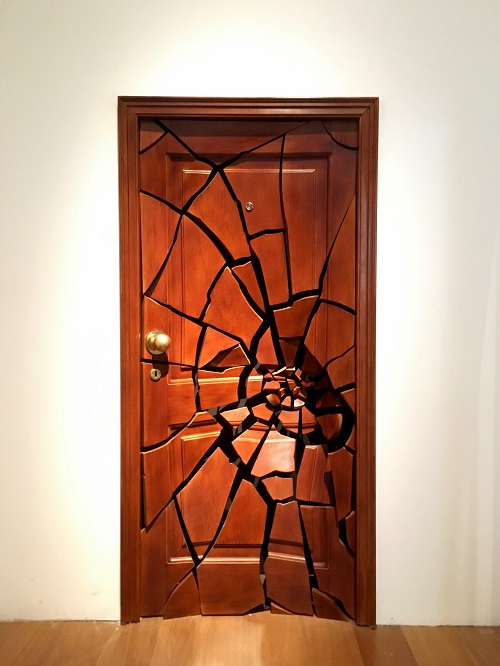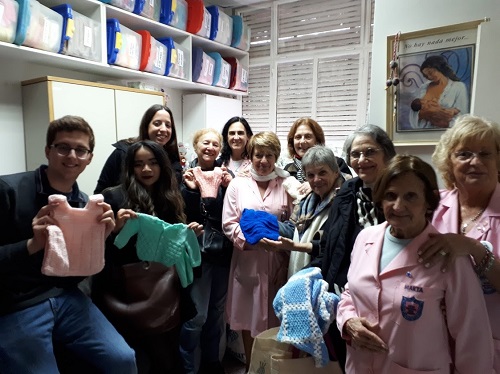Home University: University of Oklahoma
Major(s): Spanish
Year in School: Senior
What goals did you have for doing an international internship? What factors made you decide on the CEA internship program in Buenos Aires?

I already had experience doing a study abroad program, and since I am approaching my final year in college I thought it was time to get out of my comfort zone and take one step further abroad by doing a professional internship in Buenos Aires! Besides, I really see myself utilizing my Spanish and working abroad in the fields of teaching and/or tourism, so building the skills in a Spanish-speaking country felt like a good place to start. So, my goal was simply to start building a professional foundation abroad to help me better understand global multiculturalism in the workplace. The first time I chose CEA was to go to Granada, Spain — and their onsite team could not have been any better. It was therefore reasonable to put all my trust with CEA again to take a step out of my comfort zone for the internship. I chose Buenos Aires because I have been to Argentina before but wanted to understand their city life better. I also wanted to continue developing competence in the Spanish dialects in the world, and Argentina has one of the most difficult to grasp!
What is the most important thing you have learned?
Be aware of what things (big or small) you are sacrificing from your life in your country when faced with a new culture. Once you recognize the factors, use the cultural differences as a way to gather more insight about the culture itself rather than using U.S. standards to judge them.
What kind of exposure to the local culture did you get as an intern that you would not have gotten as a traditional study abroad student?

The most apparent is the exposure to having to engage with the locals themselves! It's not uncommon to see many students in traditional study abroad programs hanging out mostly with those from their home country. There is nothing wrong with that, but an essential part of understanding a culture is much more than just visiting beautiful geographic locations, eating different foods, and going to the tourist hot spots — actually talking can provide you with aspects of the culture that the other tangible factors cannot. I think the biggest concern for many students is their insecurity in having to speak and comprehend a foreign language and feeling embarrassed (I refer to students who are studying the language of the country they are in). I really understand this fear, but I assure everybody that locals really appreciate it when you attempt to speak their language. For this matter, I do not believe the barrier is really a language barrier (you don’t need to be perfect!), but rather a mental one by the student not feeling confident. It is a privilege for us that we speak English since most of the world is learning it, but as somebody who focuses on enriching our global competence and roles in the global community, I think we need to give back and show our appreciation and respect for other languages as well. If you are learning the language of the country, there is no better way to improve it than to just… speak! Doing this can yield positives: new friends, new opportunities, a boost in your confidence — and new understandings of their culture.
What skills have you developed as an intern that will help you in your future career?
I developed more confidence expressing myself in Spanish, which is pretty necessary for my future goals working abroad. I also developed more cultural sensitivity and understanding of possible cultural differences that need to be adapted to for careers abroad. I recognized an area of growth of mine, which is the ability to adapt to changes without frustration, and learning more about the lifestyle in Latin American culture helped me to strengthen that weakness. My internship was also highly based on interacting with people, so my communication skills have also improved!
Would you encourage other students with your major to intern abroad with CEA? What advice would you give them?
 I always recommend students to CEA for their diverse array of opportunities and options. An international internship will of course provide you with common skills your local ones can too, but it provides you with even more just for the fact that you are living and working in a different culture. You will learn so much about the culture and its current situation today, which in turn will have an effect on your professional and personal growth. That said, my advice is to step out of your comfort zone and do not overthink anything. I did not know where I would be working until the week of going abroad! According to my experience and that of my fellow students doing an internship as well, all of our supervisors and coworkers were so welcoming to us and the corporate environment is so different from what we would expect in the USA. Both CEA and your internship organization want you to have a memorable experience where you are out of your comfort zone just enough so you can comfortably grow.
I always recommend students to CEA for their diverse array of opportunities and options. An international internship will of course provide you with common skills your local ones can too, but it provides you with even more just for the fact that you are living and working in a different culture. You will learn so much about the culture and its current situation today, which in turn will have an effect on your professional and personal growth. That said, my advice is to step out of your comfort zone and do not overthink anything. I did not know where I would be working until the week of going abroad! According to my experience and that of my fellow students doing an internship as well, all of our supervisors and coworkers were so welcoming to us and the corporate environment is so different from what we would expect in the USA. Both CEA and your internship organization want you to have a memorable experience where you are out of your comfort zone just enough so you can comfortably grow.
What was your typical day-in-the-life like?
I think I lucked out with my organization because it required me to go to different places and do different things every day of the week. My organization was about helping vulnerable communities in the country and the Jewish Holocaust survivors who fled to the country after World War II. Throughout the week I would help with clothing donations, medicine donations, knitting workshops, and doing various fun activities to help Holocaust survivors. At home, I got to do some online translations for the organization’s website. On the side, I would love to “coffee crawl,” meet up with friends for merienda and, most importantly— take Argentine Tango lessons weekly with the locals!
How did you manage your time between your internship commitment, classes, social activities (including balancing time between study abroad friends and locals) and travel?

I honestly did not find it that difficult in trying to make room for everything. I did a part-time internship, which is working on average 15-25 hours a week, depending on the organization. The required internship seminar class is only once a week as well! I think I had too much free time — I took eight hours of my day in a salon coloring my hair to silver!
Was there ever a point where you questioned your decision? If so, what did you do to overcome that and how do you feel about it now?
I am a very goal-oriented and driven girl. I already had thought about all the possibilities of my decision and knew that no matter what happened I would find a positive from it and find a connection in how my experience would benefit me for any future endeavors (professional or personal).
What recommendations do you have for developing a good relationship with your co-workers and your supervisor?
The first week is crucial in making a friendly impression of yourself, since you will be seeing these people for the time frame you are working. Even before you start the workweek, you will have an orientation meeting with your supervisor and during that you should really make sure to sound enthusiastic and grateful for what he/she has planned for you. Don’t forget to thank your supervisor at the end! My natural tendency is to find a balance between being professional while still letting my natural personality shine through. I laugh at my mistakes, I say my quirky thoughts out loud, and I make sure to ask questions back to get to know people. You get extra bonus points if you just speak their language without them asking you to. The coworkers and other members of the community I interacted with were especially impressed and wanted to get to know me more because they understood me speaking their language!
Tip: The most common questions people will ask you are: What are you doing here in [country?] Where are you from and what part? What are you studying? What do you do in your organization? If you can practice answering these questions in their language until you can do it almost effortlessly you will definitely come off as “really good” in their language! Some good questions to help begin to start a natural flowing conversation is to ask: Have you been to my country before? Where would you like to visit? Have you travelled before? Why are you part of this organization?









